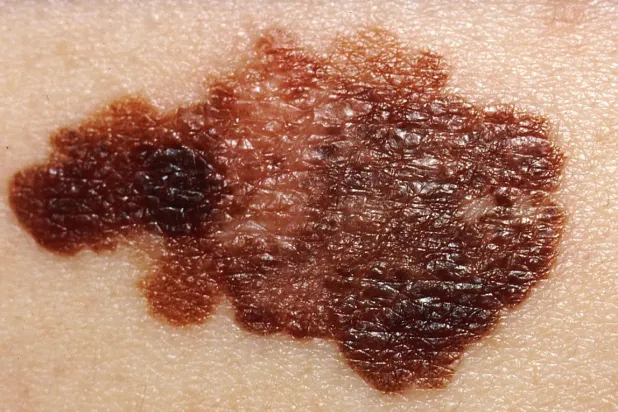
A group of researchers has developed a simple test that can diagnose the most dangerous types of skin cancer (melanoma) at home, which helps to early detect this dangerous type of cancer, without the need for biopsy or blood withdrawal.
According to Newsweek, the test developed by researchers from Michigan University is a silicone patch equipped with a minute in the form of a star, called “Exopatch”.
The patch is placed on the skin for a few minutes before it appears as a result of its cancer examination, either it shows two lines to indicate that the result is positive, or one line to confirm that the result is negative.
“The stellar needles in the patch are very small so that only the upper layer of the skin is penetrated,” said the author of the study and a professor of chemical engineering at the University of Michigan, Sonita Nagrath.
“The new Exopatch device may change the way we self -examination in the future,” she added. Currently, people who have moles of their bodies are advised to visit a doctor, almost every six months, to make a biopsy; To determine whether it is malignant or benign. But now, those people can take the test at home and get the results immediately with the utmost simplicity. ”
The length of the microscopic acupuncture is only 0.6 mm, and the width of its tip is less than 100 nanometers, and it is wrapped in a gel that picks up oxosomes; They are small vesicles released by cells in the surrounding liquid in the outer layer of the skin.
It was recently discovered that the dexes contain DNA fragments (DNA) and the RNA that cells use to communicate with each other.
Exocoscents in cancerous cells can help spread tumors by preparing tissues to receive tumor cells before they arrive. For this reason, its discovery can help determine the presence of cancer.
“This is the first area designed to capture diseases for diseases from the skin under the skin,” Nagrath said, pointing out that the test result appears within only 15 minutes.
Mileomoma is the deadliest form of skin cancer due to its high ability to spread quickly to other organs if it is not discovered early.
Once spread, the treatment becomes significantly more complicated and the survival rates decrease. Early detection remains our best defense.
Routine tests are extremely important for people most at risk, such as those who have a number of moles or a family history of skin cancer.



